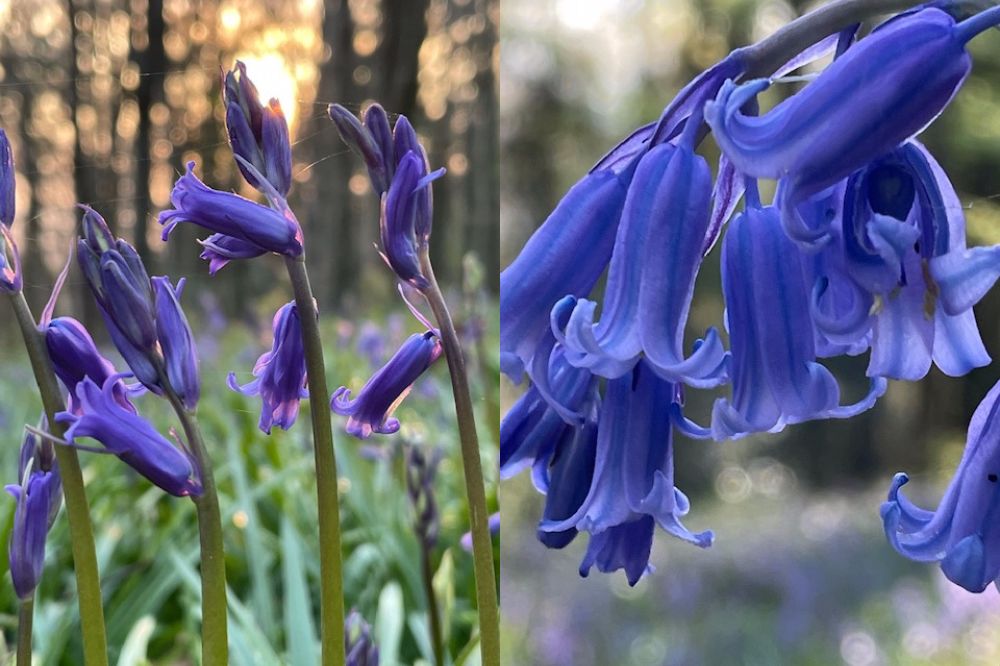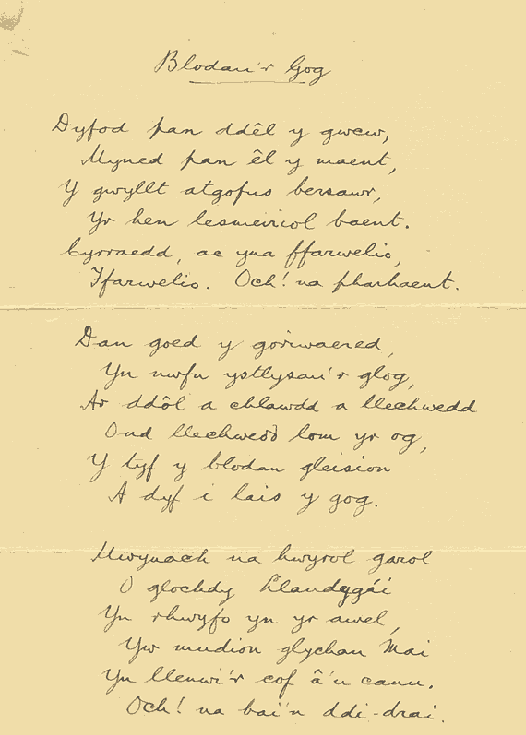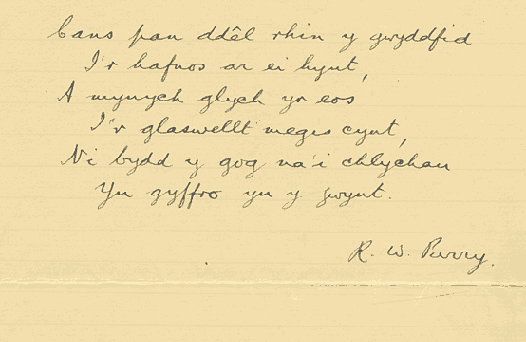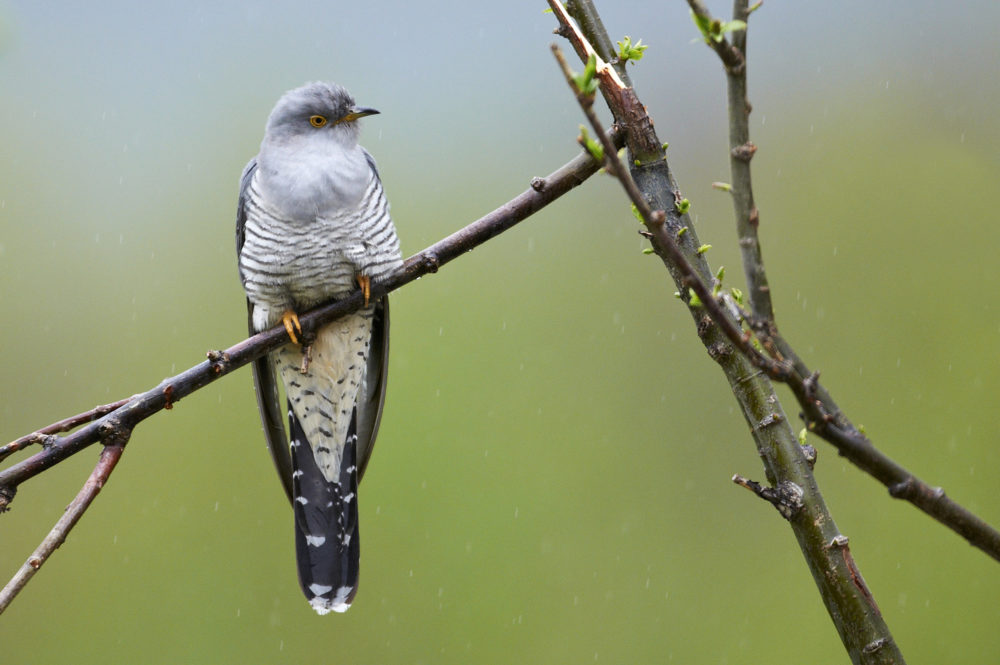Poem: Clychau’r Gog (Bluebells) by R Williams Parry

Stephen Price
Bluebells
They come when the cuckoo comes
When she goes, they go too
The wild nostalgic scent,
The old enchanting hue
Arriving, then bidding goodbye,
Ah, but their days are few
Under the trees of the hillslope
On the steep flanks of the mount,
On meadow and dyke and bankside,
but not on bare harrowed ground,
The blue blossoms are swelling
That swell the cuckoo’s sound
Softer than Llandygai’s
Pealing at close of day,
They are tossing in the breezes,
These silent bells of May
Filling the mind with their chiming –
Ah but they fade away
For when honeysuckle nightly
Burdens the summer air,
And harebells in abundance
Appear in the grass as before,
The cuckoo and her bells will
Stir in the wind no more
(Clychau’r Gog, R Williams Parry. Translation: Joseph P Clancy)

Clychau’r Gog
Dyfod pan ddêl y gwcw,
Myned pan êl y maent,
Y gwyllt atgofus bersawr,
Yr hen lesmeiriol baent
Cyrraedd, ac yna ffarwelio,
Ffarwelio. Och! na pharhaent
Dan goed y goriwaered
Yn nwfn ystlysau’r glog,
Ar ddôl a chlawdd a llechwedd
Ond llechwedd lom yr og
Y tyf y blodau gleision
A dyf yn sŵn y gog
Mwynach na hwyrol garol
O glochdy Llandygai
Yn rhwyfo yn yr awel
Yw mudion glychau Mai
Yn llenwi’r cof â’u canu;
Och na bai’n ddi-drai!
Cans pan ddêl rhin y gwyddfid
I’r hafnos ar ei hynt
A mynych glych yr eos
I’r glaswellt megis cynt,
Ni bydd y gog na’i chlychau
Yn gyffro yn y gwynt


© Copyright The Archives Department, University of Wales, Bangor
Reflections
R Williams Parry’s beloved poem, Clychau’r Gog, might appear to be a simple ode to our most celebrated of native wildflowers, but read between the lines and the poet’s deep felt ruminations on the nature of life, of Wales, of faith, of nature and everything in between brim to the surface.
Hiraeth both explained and made mysterious as ever.
It would do a disservice to the wealth of known and undiscovered Welsh poetry to label this classic of the Welsh language classroom a national favourite, especially since barddoniaeth is such a central and important feature of Welsh culture – how reductive is competition in the arts anyway – but it would certainly be true to say that it has become one of the most widely known Welsh language poems – not only because of its sheer beauty, but because of the magnetic pull of the bluebell itself.
The transcendental experience of a bluebell wood comes, in no small part, due to its fleeting nature and the long bare-branched winter beforehand.
More than any other flower, they seem to signify the passing of the seasons, and man’s desire to hold back the clock; to stop the sands of time running away.
If only the joyous burst of spring and inland sea of blue could remain forever.
Only the bluebell’s fleeting nature is what makes it so potent – its return in the face of vulnerability to Spanish invaders, footfall, destruction of nature and the like.

This enduring ode to the bluebell is a lament on loss and a reminder to drink in the now. To embrace nature with every fibre of our being and each of our senses while we still can.
These silent bells of May. Let’s not let them fade away
Support our Nation today
For the price of a cup of coffee a month you can help us create an independent, not-for-profit, national news service for the people of Wales, by the people of Wales.






The bells of Llandygai definitely still do ring.
Diolch Elizabeth! I asked a friend from nearby if that was the case and was told otherwise (with regard to bell ringing) but very pleased to hear that – a quick Google tells me it’s still going strong too. Much appreciated.